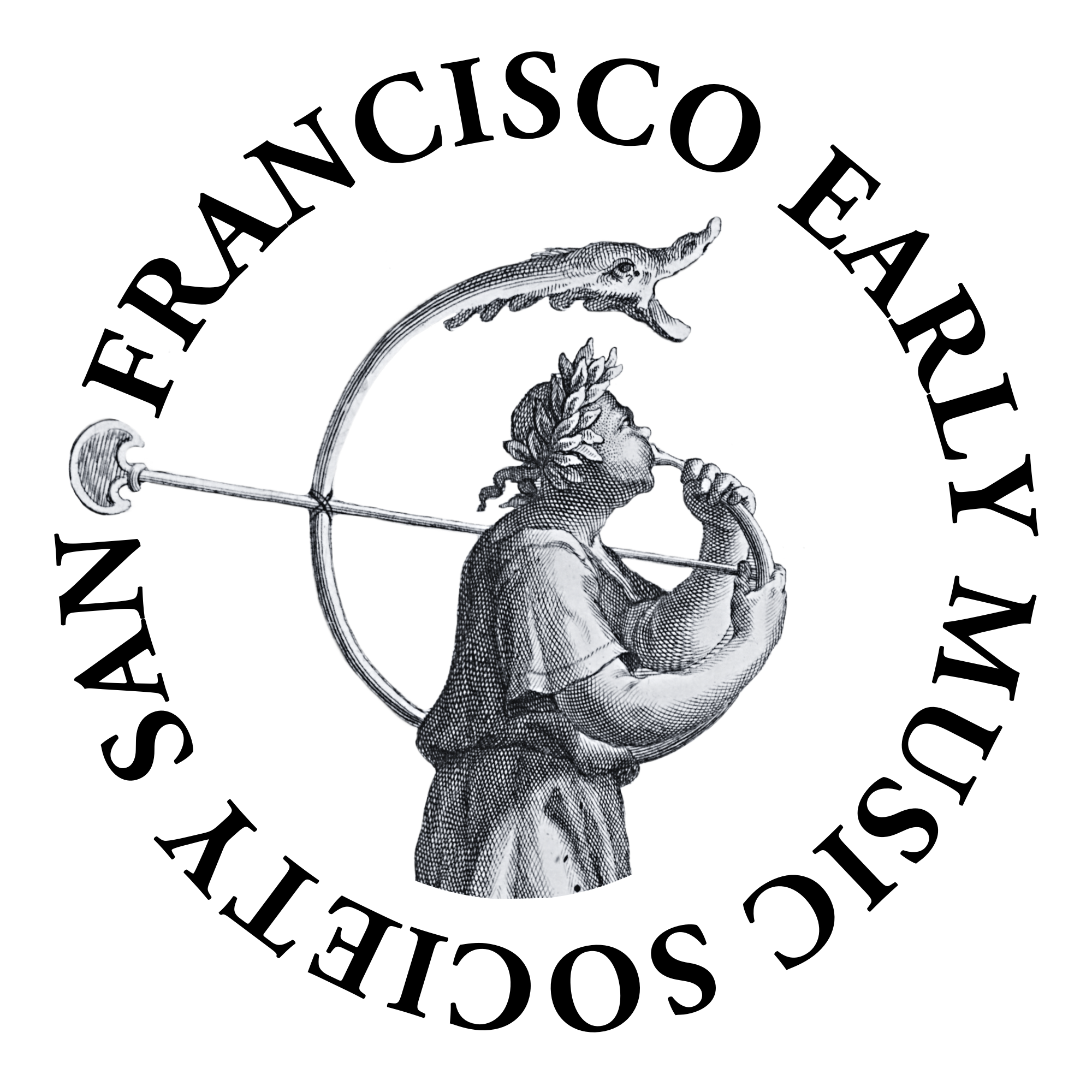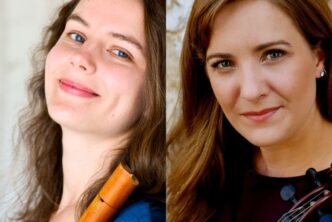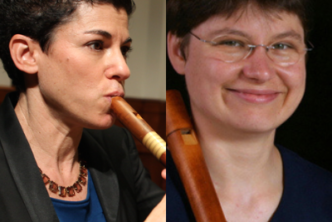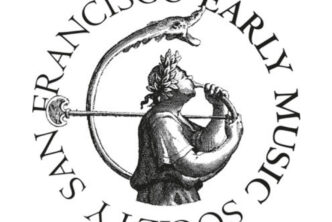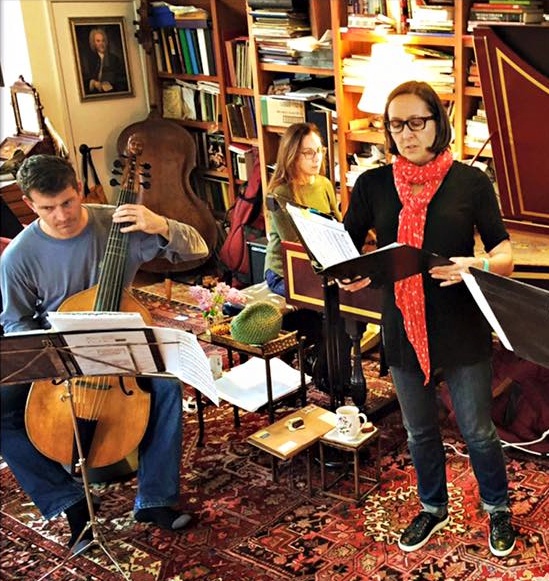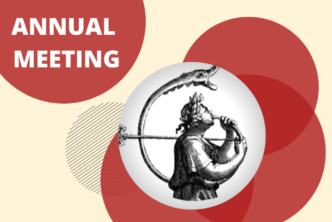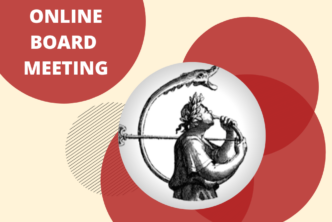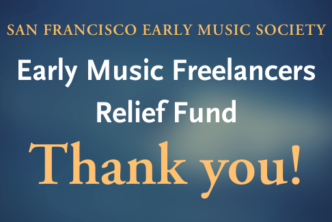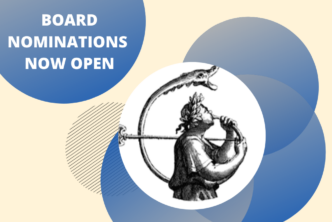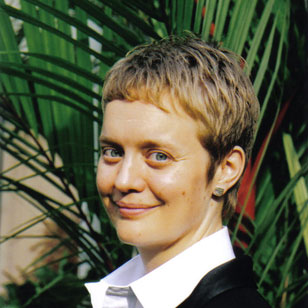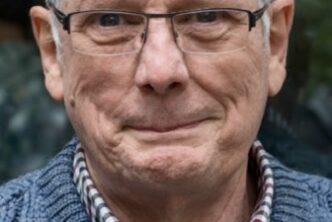Letting the Music Do its Work
by Jonathan Harris
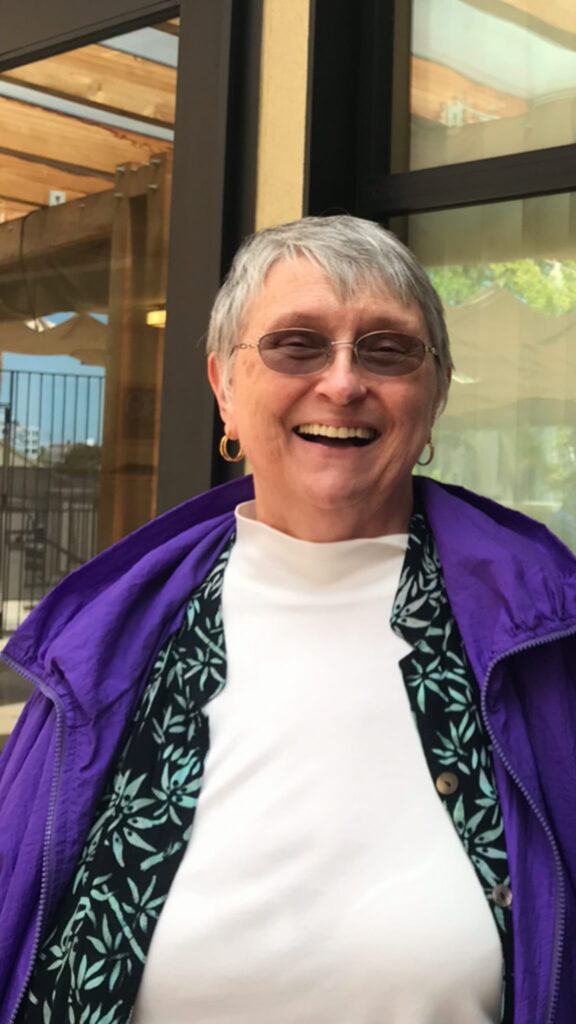 Susan Sheppard Hedges, longtime administrator for the San Francisco Early Music Society, passed away on Thursday, August 27, following complications from a stroke she suffered this past March. Although she retired from SFEMS in 2007, she will be remembered fondly and her loss felt deeply by many in our community.
Susan Sheppard Hedges, longtime administrator for the San Francisco Early Music Society, passed away on Thursday, August 27, following complications from a stroke she suffered this past March. Although she retired from SFEMS in 2007, she will be remembered fondly and her loss felt deeply by many in our community.
Susan is the first person I met in SFEMS. An incredible number of us probably could say the same thing. While her official job was Administrative Assistant, that title is almost laughable—a designation of desperation—since she did so much in so many different capacities for so many people in our community. Susan was the voice and face of SFEMS for 15 years. She was the one who answered our phone, sold subscriptions, concert tickets, and memberships, and tried to answer every question she could about early music to whoever called; and when she didn’t know the answer herself, she made it her business to call around and find someone in the Society who did. Susan maintained our membership database and sent out renewal letters. She greeted people at our concerts, sold even more tickets at the front of the house, coordinated ushers, and sometimes got up on stage to introduce the artists. She was also registrar at our Summer Workshops (that is where I met her) and served on the SFEMS Board of Directors.
Her work for SFEMS can be called truly a labor of love, because in everything she did Susan led from the heart, guided by both a love of music and a love of people. Her enthusiasm, affability, Southern charm, and infectious sense of humor undoubtedly helped sell a lot of concert tickets and recruit many new members. But it is the compassion, thoughtfulness and generosity she showed her friends that are the best measure of her character.
One thing, among many, for which I will be eternally grateful was her calling to ask if I wanted to be an usher at the American Bach Soloists’ performance of the B Minor Mass at the 1992 Berkeley Festival. The concert was completely sold out, and Susan knew how much I loved that work. The night of the performance, even though people were still streaming in, I remember her telling me, shortly before Maestro Jeffrey Thomas came onstage to take up his baton, “I can handle it from here; go find a seat.” It was the best performance of the Mass I ever have heard, live or recorded. What a gift.
And I remember her driving up to Mendocino one year to say goodbye and minister to a dying friend.
Susan was a wonderful soprano soloist. I had the privilege of performing with her once, along with Phebe Craig, Julie Jeffrey and the late Bob Andrews, at a benefit concert Ensemble Sans Souci did for our Summer Baroque Workshop. She was not only brilliant in her performance; she was ebullient, a joy to work with in every way. I also heard her several times as a soloist at St. Mark’s Episcopal Church in Berkeley, where she did a great variety of music, and as her alter ego, Dolly Loretta MacIntyre, the Undisputed Queen of Country Music, singing everything from Caccini to Hank Williams.
If I had to pick one quality of Susan’s that I most cherish, it would be her utter lack of guile. If she loved someone or something, she did it with all her heart. If she thought you were wrong, she would tell you straight to your face. Years ago, when she was on the SFEMS Board, there was a policy question on which the members were deeply divided. The specific issue is unimportant; suffice it to say there were valid arguments on both sides, but feelings were running high. At a crucial and contentious meeting, Susan found herself opposing an especially powerful Board member, and I heard through the grapevine that she had confronted and reprimanded him there for a remark she considered unfair. I talked to her a day or two afterwards and, since I was on the same side she was, congratulated her somewhat teasingly on her chutzpah. “Did you really chew him out?” I asked. “Yes, I did,” she replied without sarcasm, pride, or equivocation; “and as soon as we get off the phone I’m going to call him up again and chew him out some more.”
At the time of her retirement, I interviewed Susan about her involvement with music and early music. The story of the San Francisco Early Music Society can be told in the stories of its individual members—people who have built the Society, and people whose own lives have been transformed by their involvement with SFEMS. Susan’s story shows both sides of this connection at their best.
Many of SFEMS’s earliest members gravitated to the Bay Area from elsewhere. In Susan’s case elsewhere was Cookeville, Tennessee, a seemingly unlikely start for someone who became so devoted to early music and central to our community. I always am fascinated to learn what has brought people to these arcane arts of past centuries, and when I interviewed her, the more I learned about Susan’s background, the more it all made sense. And as I said, her story is really also the story of SFEMS and the power of early music.
***
SH: I was born in Kentucky right at the end of the War (WWII), two weeks after President Roosevelt died. My father was a civil engineer with the Tennessee Valley Authority. Because he was working for the TVA, they put him way back on the draft list and didn’t call him up until shortly before I was born, and then he didn’t come home until I was about 14 months old. While he was in the service, my mother and I lived in an apartment above my aunt and uncle’s office (she was a nurse, he was a doctor). When Daddy got back we moved to Norris TN, which was close to Knoxville, where his TVA job was. He died when I was not quite 6, and we moved to Cookeville, so my mother could finish college at Tennessee Tech (she had less than a year to go when she got married). She was what in those days was called a “home demonstration agent.” She worked for the State, I believe, organizing meetings around one county to teach mostly rural women a whole range of things. Some were pretty traditional crafts, but some were quite controversial at the time, either because they always had been the purview of men, or because they were subjects people just didn’t like to talk about—things like finances and budgeting and why house and life insurance were important. She also got some flack for teaching boys in the 4H Club how to use a sewing machine. The boys loved it, but some of their parents weren’t too happy. And it was through that work she met my stepfather, who was a tenant farmer. After they were married, from the time I was 9 or 10 until I was 18, we lived on farms. I went to school at the Tech training school—a school for student teachers—which was a really good school with really good teachers.
JH: How did that lead you to early music?
SH: I started college as a nursing student at Tennessee Tech., probably because my aunt, who was also my godmother, was a nurse. But when I saw the amount of chemistry required, I immediately switched to home economics. I started singing in the college choir the first quarter I was there. I didn’t read music very well, but I knew how to harmonize, because I had always sung at home and in church. And I had taken a year and a half of piano lessons as a kid (it turned out I knew how to count better than the teacher). I kept singing in choir and began taking voice lessons my second quarter, and by spring, I was certain that what I really wanted was be a music major. When I went to the Chair of the Home Economics department to get paperwork signed to change my major, she looked at me and said, “Well, I never thought you belonged in Home Economics in the first place.” That ticked me off, so I went straight to the Music Department chairman with my papers and said, “Before you sign this, please just promise me one thing: that you’ll never tell me I don’t belong in music.” It took me 5 years to get my BA, mostly because of Music Theory (and may I never analyze another piece as long as I live). After my senior recital, the chairman came up to me and reminded me of that promise I’d made him give me, and he confessed there had been a couple times he wanted to say it, but, he said, “I’m damn glad now I didn’t.”
JH: Were you exposed to any early music then?
SH: It was just music on the shelf. We studied Bach chorales in theory class, and we sang a few pieces in choir. But the process of discovery didn’t start until after I moved to Modesto in 1970. Tom and I got married in 1972, and David was born in 1975. When David was 4 I heard about a workshop over here. Tony Rose and Mark Anderson are the ones who told me about it. Mark played recorder and Tony cello, and we met singing in a choir together and then split off to form our own ensemble, which we called the Modesto Master Singers; Lloyd Elliott was our conductor. He had some interest in early music, but Mark and Tony were really into it. Tony built a 5-string cello for Elisabeth Le Guin—that was the first instrument he ever made. Anyway, they attended the first Cazadero workshop that Laurette Goldberg organized. Philip Brett was the choral conductor, and they did the Handel Dixit Dominus and all this other stuff, and they came back to Modesto and said, “You’ve got to go to this workshop, Susan! You’ve GOT to go. We did the Dixit Dominus in 6 days!”
So the next year, I went with them. Kathy Perl was there, and Carlo Novi, Eileen Anderson the harpsichordist, Laurette and Philip of course, Mary Rawcliffe, Eva LeGêne, and I can’t remember offhand who else, but I was overwhelmed at hearing this music played on original instruments. Up to that point I hadn’t understood just how good it was. I remember one day, there was a little afternoon concert in the “cafeteria.” Eileen came in wearing overalls and sat down at the harpsichord and played this unmeasured prelude by Couperin, and at the end of it there was this enormous collective sigh from everyone there. But all the music that week was like that for me.
After Laurette founded Philharmonia, I used to come up to the Bay Area to see them perform. There was one concert when they invited Leonhardt to conduct, and he brought Max van Egmond, Jeffrey Thomas and Drew Minter. I didn’t know either Jeffrey or Drew. But Helene Goldberg and I went to this concert of Bach and Purcell—this was 1984—and I still remember those concerted anthems they did, “Rejoice in the Lord alway” and “In thee, O Lord, do I put my trust.” We were sitting in the fifth row, and the singing was amazing. Drew’s voice was so gorgeous, and Jeffery was hot! And when Max finished singing Ich habe genug, Helene turned to me and said, half-jokingly, “Well, if God believed in Bach, I guess have to.” And I thought to myself, this music is still doing what it was doing when it was written! If a person can say something like that, even half-jestingly, if this music can affect a person so strongly that she just has to sit there with her beliefs suspended, taking it all in, then this is what I want to do.
I had already started working on a Masters Degree at Stanislaus State by then, and when I told Dr. Unruh, the department chair, that I wanted to study baroque music, he said I’d have to put together my own interdisciplinary, independent study program. So I did. I took some English and History courses, and I was able to use the SFEMS Baroque Workshop for further independent study credits. I never finished the degree, which was mostly an excuse to keep doing music, but I had a great recital. Concerto Amabile was my band. We did some Caccini, Schütz, Bach, a whole range of baroque music.
I honestly don’t know how much I learned, but I’m real clear on what makes me feel good. I think everything Bach wrote is ecstatic.
JH: Was music important to you your whole life?
SH: Yes. I was always singing in church. My mother sang. She was the vocalist for the jazz band at Tennessee Tech. Later, when I went there, I was vocalist for the same band.
JH: What kind of music did you have in your home?
SH: We didn’t have a lot of records. We did have a set of Mario Lanza singing what he did for The Great Caruso. And I remember an Alice in Wonderland album with Cyril Richard singing the Mock Turtle’s song. But mostly it was just what was on the radio, popular singers of the time, like Dinah Shore. There was one really good live jazz program on the local radio station, which I enjoyed. My stepfather had to listen to the Grand Ole Opry every week, and there was a lot of country music on the radio, but I didn’t care much for it then. I liked the popular folk singers of the early 1960s—Peter Paul and Mary, The Kingston Trio—but I didn’t know real Appalachian folk music until much later. I didn’t even know who Jean Ritchie was until about 20 years ago.
When I was in college, Ray Charles came and gave a concert. The tickets were ridiculously cheap, so I bought two, thinking I could get someone in the Music Department to go with me. But everyone I asked said, Why do you want to go see him? And I said, because he’s really good. Finally, one guy said he’d go. The concert was held in the gym, and we had seats in the stands, which of course were both visually and acoustically better than the more expensive ones at floor level. One of the things that struck me most was how this one blind man managed to hold an entire band together conducting with his whole body and tapping his heel as he played. I don’t know how he did it, but you could hear the sound of that heel cutting through everything—piano, organ, guitars, drums, and a big horn section. It was just amazing to hear that man. When the concert was over, the guy I went with said, “Wow. I had no idea….” And I said, “Well, we’re music majors; we’re not supposed to have these ideas, are we?”
I think good music is just good music, whether it’s baroque or country or jazz or soul or whatever. Good music is what actually moves you, music that teaches you something, that offers something you can identify with. I couldn’t identify with baroque music when I was a kid because I didn’t know enough, and also because I never heard it played right. I know it’s become a little unfashionable to say this nowadays, but I really believe it makes a difference to hear this music performed on old instruments and even at the pitch for which it was originally written.
JH: How about singing styles?
SH: Well, in terms of vibrato, I think I agree with Anna Carol Dudley that there must have been singers who had it as part of their normal tone production—and the older I get, the more of it I have (laughs)! But the musical rhetoric I take very seriously. If I sing, “I know that my redeemer liveth,” I’m going to have to sing those words three times, and I know I’d better sing them differently each time, because you’re trying to convince people. That’s what this music is for, and why it’s structured the way it is with all this repetition built in.
JH: What singers do you especially admire?
SH: Lorraine Hunt. I still remember her and Drew doing Handel’s Susanna. I don’t think I ever heard her sing a wrong note. Montserrat Caballé. Nobody could sing a pianissimo like that woman could. It just cut right through you. I like Placido Domingo—much better than Pavarotti—especially his early recordings, before he got more bombastic. I don’t like going to the opera (even if I could afford it!). There’s no pleasure hearing singers blow their guts out trying to be heard over an orchestra (early opera is very different, of course). I have to say, Judy Nelson is one of the best singers I’ve ever heard—everything I heard her do, from the 1980s to her performance at Laurette Goldberg’s memorial concert.
JH: How did you get involved with SFEMS?
SH: John Ricci and Ken Johnson were the ones who pulled me in. I had met Ken at Cazadero, because he had his movable “store” with him, but I didn’t really know him. When I met John at Dominican, though, we just hit it off and became instant friends. Around that time, our membership mailings were falling through the cracks, and John asked me whether I wanted to help them out with that. At first, they would just send me materials and I would stuff them into envelopes and mail them. After Ken’s computer crashed, Rich Hessel helped us get our first Mac, and Ken put all our membership information into 4D, the relational database program, and after Ken got too sick to continue doing it, I ended up with both the computer and the membership job. A little later I began helping Mark Perl with our concert series tickets, so eventually I wound up doing our box office and subscriptions and front-of-the-house work, too. And then someone asked me to handle registration at the summer workshops, which I did for a few years. But I didn’t like that job, because it took me away from the workshop. I could never just “be” at the workshop that week; there was always something I had to check on or do. Ironically, one result of being so involved with SFEMS is that I’ve probably done less music of my own.
JH: A sadly familiar tale. You’ve been very involved with St. Mark’s Episcopal Church in Berkeley for a long time now. You’re their soprano soloist and section leader in the choir, and you do a lot of really great music in the services there—something that’s becoming increasingly rare in churches today, as Liturgy itself has become rare. What do you see as important about Liturgy and music in worship services?
SH: You have to understand that whatever church you’re in, what happens in front of the congregation is Theater. It’s not just theater—it’s adoration and worship and a lot of other things, but music is an incredibly important part of all that. The congregation needs to be actually participating in music; but there also need to be times when they can sit and listen and contemplate. It’s like Bach. You just have to shut up and absorb it and let the music do what it’s going to do.
JH: What do you see as the Society’s greatest accomplishments?
SH: I think the summer workshops have done a tremendous amount for people. Of course, you get out of them what you put in, but personally, I’ve never been to a SFEMS summer workshop where I felt I didn’t learn something. Another very good thing we do is the after-school program for kids. I’m sorry we don’t hear more about that. A lot of times you never hear about the things that are most successful, because they’ve got it all worked out and don’t cause problems and just continue without needing any attention.
Our concert series deserves a lot of praise, too, and I hope it keeps going the way it has. I’m not one of those people who thinks it needs to grow in order to be successful. I don’t like that business model applied to SFEMS. When I was on the Board, someone at a meeting once referred to something we did as “the product.” I managed to hold my tongue for about 10 minutes, and then I said, “I’m sorry, I don’t mean to offend you, but please, I don’t ever want to hear that word applied to what we do.” And I must say, I’ve never heard or seen it since—not at a Board meeting or in a 5-year plan or anywhere. One thing I do wish, though, is that we would do more about publicizing our concerts, even if it means investing some money.
JH: You have a wonderful alter ego named Dolly Loretta MacIntyre.
SH: That’s Dolly Loretta MacIntyre, the Undisputed Queen of Country Music.
JH: Where did she come from?
SH: Well, Dolly Parton, Loretta Lynn, and Reba MacIntyre all have been called the Queen of Country music at one time or another, so Dolly Loretta MacIntyre has to be the Undisputed Queen. Of course, the original Queen of Country music was Miss Kitty Wells, but I’d never try to imitate her.
I can’t remember exactly when Dolly came out. The first thing I did at a workshop that wasn’t baroque music happened at Cazadero. There was a concert one night, after we’d been there for several days. Rod Cameron was acting as MC, making witty remarks in his wonderful Scots accent (Laurette always knew the right person for any job!). After the concert, we were all standing around drinking wine, and I went up to Rod and asked him what he did besides make baroque flutes. And he said, “I love to sing.” And I said, “What do like to sing,” and he said. “country music.” So I asked him what country music he knew, and he started singing “Long Black Veil,” and I harmonized with him. And then he said, “What do you know?” So I sang something, and he harmonized with me. And afterwards this old Russian guy started singing something in Russian, and it just grew, with people standing around all the while. Tony came up to me afterwards and said, “You’re the heroine of Cazadero.” And I said, “What in the world are you talking about?” and he said, “This is just exactly what we needed. We’ve really been needing to something that was not baroque music for a while.”
So the next year, Rod brought his guitar and we did it again. He even came down to Modesto once and accompanied me in a recital I did there. But I don’t think Dolly made her debut until after we moved up here. It must have been in 1989 or 1990. I wanted to do something different at the big Baroque Workshop dinner on Friday night. And I asked Doug Mandell if he’d back me up singing “The Battle of New Orleans.” So we did that, and I dedicated it to Philip Brett, pointing out that while he claimed to be an American, he was in fact British! And I sang it really hard and high and completely in chest voice and it was awful, and everybody just broke up. I also put a quartet together to sing “Precious Memories,” and we sang it with that twangy sound, the way it was sung back home. There were a couple guys in the audience drinking. And they were snickering, probably because they thought we were going to play that one for laughs too. But by the end they were both crying. Because you just have to sing it that way. You have to let them know that it’s serious music, and that it is authentic.
***
Susan is survived by her husband, Tom, and son, David; we offer our deepest sympathy to her family. She will be remembered at the Society’s Annual Meeting on Sunday, September 13, and we will keep you advised of any future plans for a memorial. We would love to read your memories of Susan and share them with the extended SFEMS family. Please send any remembrances to communications@sfems.org, or post them on our Facebook page.
An earlier version of this article appeared in the June 2008 issue of SFEMS’s Early Music News.

